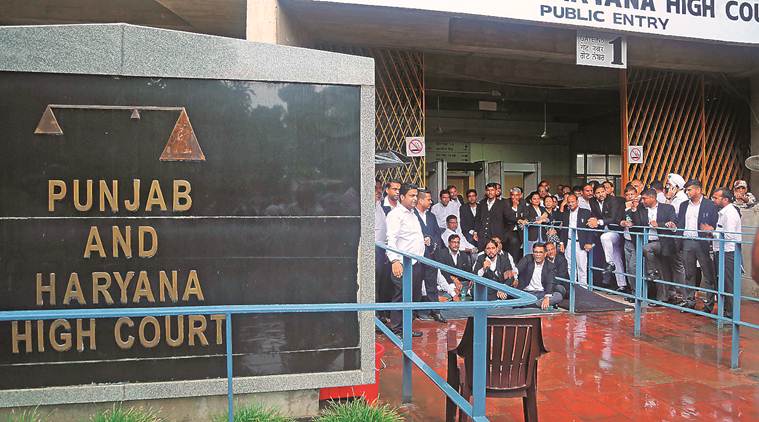 The Court has directed the Registrar Judicial to circulate the order to all District and Sessions Judges for onward dissemination among all the judicial officers.
The Court has directed the Registrar Judicial to circulate the order to all District and Sessions Judges for onward dissemination among all the judicial officers.
MORE THAN two years after the Punjab and Haryana High Court observed that the authorities need to work out a mechanism for foreign prisoners who have completed their sentences, the Centre has informed the court that the issue of lodging for the inmates can have several ramifications. It also told the court that in most cases, their countries do not acknowledge their citizenship claim.
Additional Solicitor General of India Satya Pal Jain told the court that the authorities, as and when they receive information and confirmation regarding nationality of the persons lodged in the transit camp at Amritsar, take steps to repatriate them. Jain also submitted that in most cases, the inmates have stated that they belong to a particular place and country but the country has refused to acknowledge their citizenship.
In 2017, the High Court had observed that the State can develop a mechanism where prisoners are free during the day and can come back at night. “You just cannot keep them in jail. There can be some mechanism or some kind of scientific method like GPS-method where GPS can be put on prisoners,” the bench, which was then headed by Justice S S Saron (since retired), had observed.
The bench had also then observed that India is a democratic country and will have to act in accordance with the Constitution, which also guarantees the right to life and personal liberty to foreigners under Article 21. The court was hearing a suo motu cognizance case on the rights of prisoners pending since 2015. On a reference received from the Supreme Court in 2015, the case is registered as the “Court on its own motion versus State of Punjab, Haryana and Union Territory, Chandigarh”, to proceed on issues touching the rights of undertrial prisoners, especially women, children and mentally ill, and convicts.
In April 2017, there were 44 foreign national inmates in the transit camp at Central Jail, Amritsar. The prisoners included 30 Pakistanis, eight Bangladeshis and one each from Nigeria, Nepal, Myanmar, Uzbekistan, Ghana and Sierra Leone. The number has reduced with passing years.
Regarding the issue of mentally ill prisoners in the case, the Punjab government has informed the court that guidelines were issued in May 2015 and a policy has also been framed for setting up a community home for them.
The court has also been informed that the Mental Health Care Act 2017 has been enacted and the authorities are taking necessary steps to implement the law. The division bench of Chief Justice Ravi Shanker Jha and Justice Arun Palli, while disposing of the case, observed that the State should take steps to ensure implementation of the Act and measures for mitigating the grievances of mentally ill persons who have no support from their family.